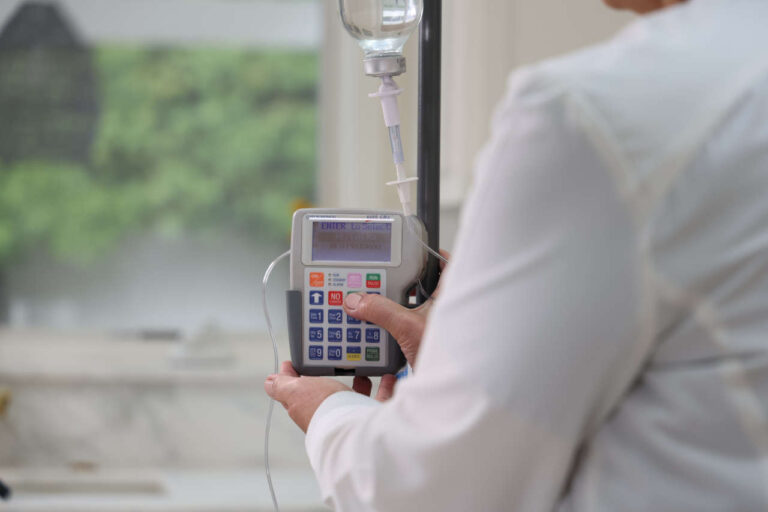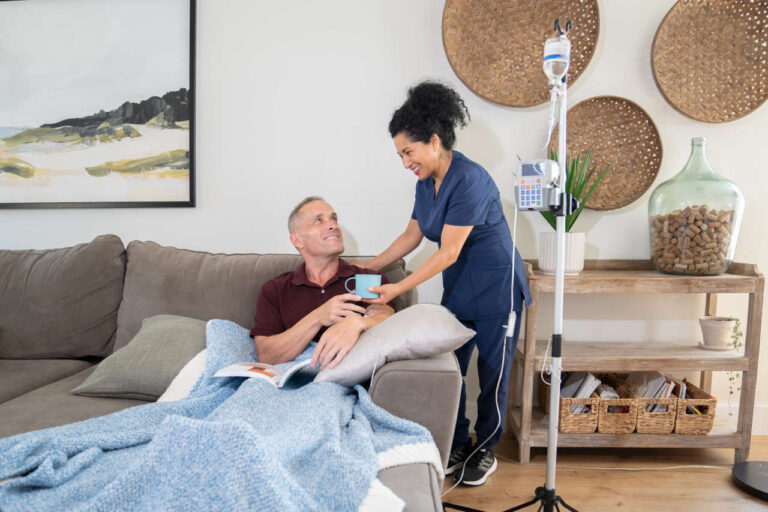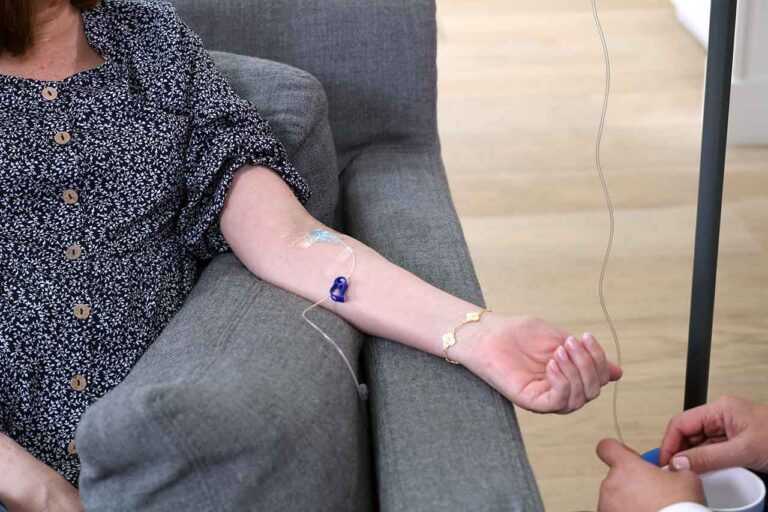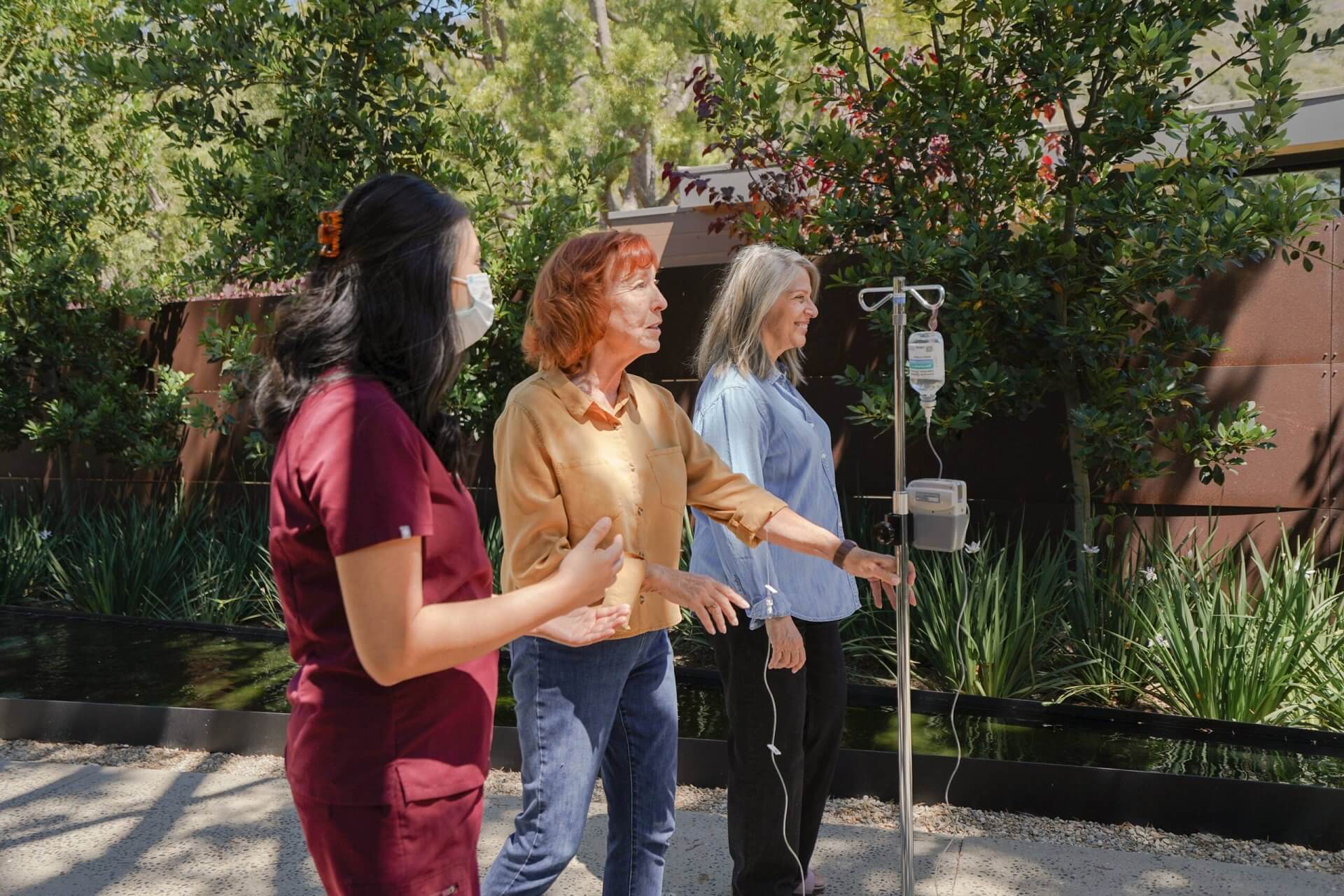
There are three different types of blood cells circulating throughout your body. Red blood cells (erythrocytes) carry oxygen to your tissues. White blood cells (leukocytes) are the body’s primary defense against foreign invaders. Platelets (thrombocytes) are among the first responders to vascular injuries and function to quickly stop bleeding until a more stable plug can form.
At times, the body’s immune system mistakenly targets its own cells, leading to damage and cell death. Immune thrombocytopenic purpura (ITP) is an autoimmune condition in which the immune system destroys the body’s own thrombocytes, leading to easy bleeding and small bruises known as purpura. One of the various treatment options available for ITP is IVIG, or intravenous immunoglobulins.
Below, we’ll provide an overview of IVIG for the treatment of ITP.
전문가와 상담하세요
공제금 지원에 관하여What Is ITP?
아이티피 is the most common cause of low platelets in children and adults. It is typically a chronic condition with periodic flare-ups. There are several different triggers that can cause flares, but the most common inciting events are viral infections. ITP is not fully understood, but it involves the production of antibodies against platelets that results in their destruction.
Without platelets to help stop bleeding, people may notice bruising on the skin or bleeding from various locations in the gastrointestinal tract. IVIG is helpful in ITP because it can help prevent platelets from being destroyed. However, some people may not develop any noticeable bleeding with this condition. Fortunately, severe, life-threatening bleeding in ITP is rare.
There are various reasons why platelets can be low in laboratory studies that do not involve an autoimmune process. This can include laboratory errors, medications, diet, or certain infections. Diagnosis of ITP involves checking for other potential causes first. Once other causes have been eliminated, treatments for ITP, such as IVIG, may be indicated.
IVIG: The Basics
Antibodies, or 면역글로불린 (IG), are proteins that aid the immune system in destroying and removing pathogens. Antibodies work like a lock and key to bind to specific sites on foreign invaders and help facilitate their removal. In IVIG, antibodies are collected from donors and administered intravenously (IV) to a recipient. IVIG can treat ITP along with several other conditions.
Some medical conditions interfere with the body’s ability to develop antibodies or other immune cells. In these situations, IVIG can be used to introduce circulating antibodies into the recipient’s bloodstream. The antibodies work the same way as if the recipient’s body made them, binding to and neutralizing invaders, thereby helping protect them against infections.
Autoimmune diseases are other conditions that can benefit from IVIG. In autoimmune conditions, the immune system attacks the body’s own cells. IVIG can be used for the treatment of ITP and other autoimmune conditions by distracting the immune system into targeting these new antibodies, or by inactivating the immune cells.
Different Treatment Options for ITP
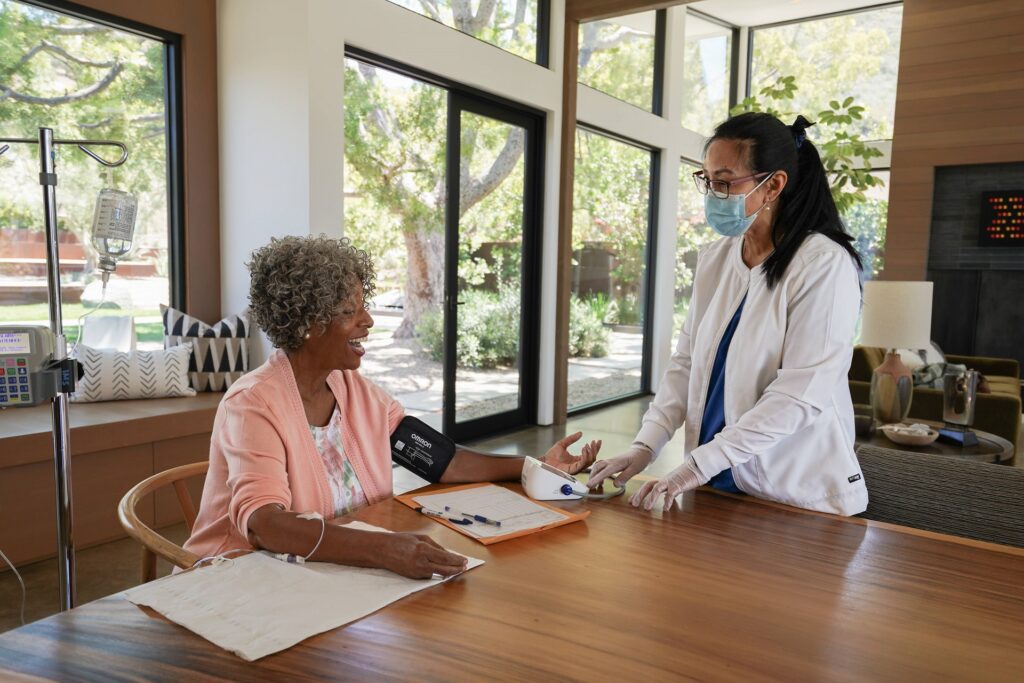
Treatment for ITP generally focuses on reducing the risk of severe bleeding. In some situations, monitoring is all that is required. Even if bleeding is present, treatment may not be necessary. In certain cases of ITP, IVIG and a class of medications known as steroids may be helpful. These types of treatment are typically used in ITP if platelets are very low or if there are bothersome symptoms.
Steroids can be used to prevent the maturation of immune cells and block signals for inflammation. Steroids and IVIG are typically used together as the initial treatments of ITP. Both methods of treatment can be effective at increasing platelet counts. However, IVIG provides faster results and can be used alone if steroids cannot be given due to other medical conditions.
In rare cases of ITP being unresponsive to IVIG and initial therapies, other treatments may be used. This may involve genetically engineered antibodies or medications that stimulate the body to produce more platelets. The spleen may also be surgically removed in severe cases as it is the primary site of the body where platelets are destroyed in ITP.
IVIG 복용량을 받으세요
재택 주입How IVIG Works in the Treatment of ITP
IVIG is a first-line treatment for ITP that has been used for several years. It is often combined with other treatments to obtain the best results. In ITP, a person’s antibodies coat platelets and mark them for destruction by immune cells in the spleen and liver. IVIG works by overwhelming the immune cells, interfering with the signal that allows them to engulf and destroy the platelets.
IVIG is especially useful for ITP as a rescue treatment because it can rapidly increase platelet counts in as early as 24 – 48 hours. This makes it ideal for scenarios where someone with ITP may have to undergo an urgent invasive procedure or have recently experienced an injury that puts them at increased risk for bleeding.
Who Should Be Treated With IVIG
Treatment for ITP depends on the severity of the bleeding. For minor bleeding, treatment is often not required beyond addressing the underlying cause. Bleeding in or around critical structures or bleeding that causes a significant decrease in blood counts warrants more urgent intervention.
Your physician can address potential causes of bleeding and advise on whether it is appropriate to use IVIG for ITP.
How IVIG Is Administered for the Treatment of ITP
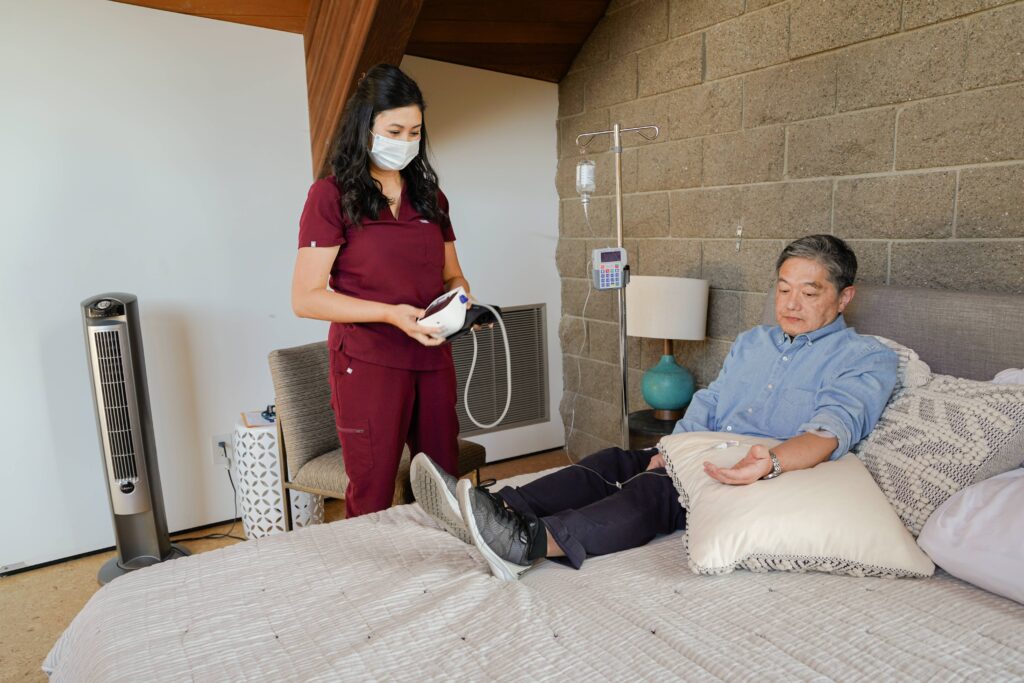
Immunoglobulins are stored in refrigerators after collection and then allowed to warm up to room temperature before administration. While intravenous (IV) administration is the most common route, immunoglobulins may also be administered through injections below the skin (subcutaneously) or into the muscle. IVIG is typically given in a healthcare facility but can be provided in a home setting by experienced infusion staff in some cases.
For the treatment of ITP, IVIG is transfused over several hours. Sometimes it may take two days to administer the entire dose. Conversely, IVIG may be stopped early if platelet counts rebound to adequate levels prior to completion.
Dosing intervals may also vary depending on the severity of the disease and response to treatment. Generally, the immunoglobulins last between two to six weeks in the body to provide temporary relief before being degraded. IVIG does not necessarily need to be administered again at the end of that interval.
How to Prepare for IVIG Treatment in ITP
One of the best ways to prepare for IVIG treatment is to hydrate. This is especially important for people who have other medical issues, such as diabetes or kidney disease. You may receive IV hydration prior to the transfusion of IVIG for ITP, but adequate hydration can be achieved by drinking plenty of fluids in the days leading up to treatment.
Premedication is often not necessary before IVIG treatment. Treatment with Tylenol or ibuprofen may provide some relief or help prevent some potential side effects of IVIG, including headache, nausea, muscle aches, or chills. If someone has received previous IVIG treatments without complications, premedication may not be necessary.
IVIG 전문가와 상담하세요
최고의 IVIG 홈 주입 | IVIG 치료 지원 받기Adverse Effects of IVIG Treatment
People may experience various adverse effects after IVIG treatments. Most of these side effects occur within a few hours of starting the infusion. People are more likely to experience symptoms after their first treatment compared to subsequent treatments. The severity and type of adverse reaction(s) depend on other medical conditions as well. The risk of adverse effects is generally greater with large doses and faster infusion rates.
There are not any unique adverse effects to IVIG for ITP. The most common adverse effects that people may experience are headaches, followed by fatigue, abdominal pain, chills, and muscle aches. These reactions are generally mild and short-lived. Anaphylaxis, which is a severe allergic reaction, is extremely rare. For these reasons, the first IVIG treatment for ITP is generally performed in a supervised healthcare setting.
If adverse reactions occur, treatment can generally reverse the effects. Aches and pains can be treated with over-the-counter (OTC) medications. The risk of adverse reactions can be minimized by adequately hydrating prior to the infusion. Additionally, there are various manufacturers of IVIG; changing to a different product may prevent future reactions. Starting with a smaller dose and slower infusion rate can also help prevent adverse effects.
Receive IVIG for ITP With AmeriPharma® Specialty
If you need IVIG treatment for ITP, AmeriPharma® Specialty can help. We are a full-service URAC-accredited specialty pharmacy licensed in more than 40 US states and territories. With us, you can receive IVIG any time from the comfort of your home. We’ll send our specialized infusion nurses to your home to administer your treatment.
~에 AmeriPharma® 전문 약국, we strive to make life easier for individuals with complex medical conditions. This is why we provide care beyond medical treatments. We also offer insurance approvals and 공제금 지원 to help you reduce the cost of your treatment. 문의하기 at (877) 778-0318 to consult with a licensed pharmacist and begin your therapy.







